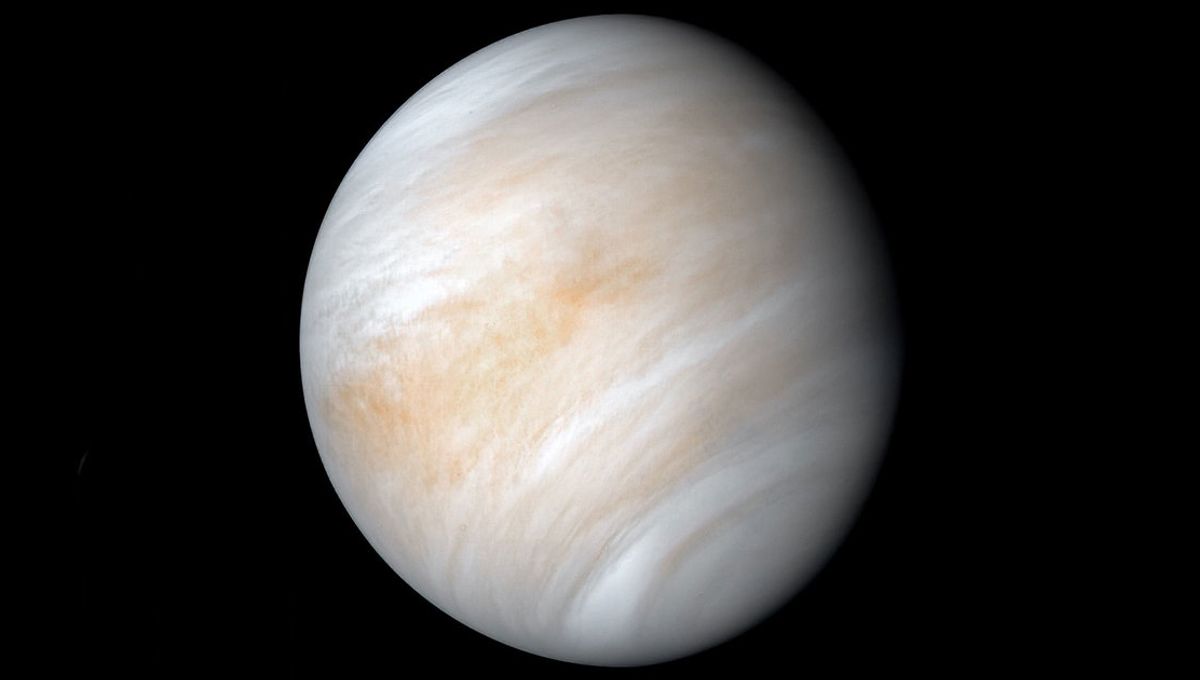
Three years ago astronomers announced they had found the molecule phosphine in the clouds of Venus. On Earth, phosphine is linked to biological activity, aka life. Astronomers were not expecting it and its presence coudn’t be explained. What followed was a flurry of excitement and then debate on whether the molecule had really been found. Now, the team has announced today further evidence of phosphine not just in the higher atmosphere but all the way down to the clouds.
Team leader Professor Jane Greaves from the University of Cardiff teased this data collection last year, explaining that they had extra robustness in the discovery data as it was from a different instrument, and they could also see how the phosphine changes over time. Today she presented their findings at the National Astronomy Meeting 2023.
“We’ve made quite a lot of progress since we got the first data in 2017,” Professor Greaves told IFLScience. “We have got five different times we’ve discovered the phosphine now, so we can really start to look at how it’s behaving. It’s not so much about finding it, it’s about whether it changes over time and what that might mean.”
When they first announced their discovery in 2020, the team revealed their findings came from two independent observations of the signal, however, a follow-up study, which included members of the original team, failed to find the molecule – although they conceded they looked in the tops of the clouds and that didn’t rule out phosphine in the deeper layers.
The new data, collected using the James Clark Maxwell Telescope (JCMT) in Hawaii, is reported to be comprehensive, showing evidence of phosphine high in the Venusian atmosphere, but also lower on top of its clouds. This suggests to the team that the phosphine comes either from the clouds or below them.
“Finding it there shows that there really is a source either in the clouds or below the clouds,” Professor Greaves explained. “And that’s really interesting because the clouds are the interesting part… because there might be a possibility, a long shot, that there might be some kind of living organisms there.”
The possibility of life is exciting, of course, and generated many “life found on Venus” headlines back in 2020, although currently, there is no direct evidence that this is the case. But the team does think that some of the data strengthens this unlikely scenario. For example, the amount of phosphine doesn’t change that much across the various observations. As a comparison, sulfur dioxide, which is believed to be related to volcanism on Venus, can vary wildly – more than 10 times from year to year or even shorter timescales.
“The Phosphine seems to be only varying at most by maybe up to about twice as much, or down to about half as much. It is not really variable, and I think that’s important in the context of interpretations,” Professor Greaves told IFLScience.
The team will continue to investigate the mysterious molecule on Venus and are looking forward to the upcoming missions to the “morning star“. NASA has multiple Venus missions planned (although one is now delayed) and the European Space Agency has one to study its atmosphere. But Greaves and her team are most excited about a smaller mission from the Breakthrough Initiatives that aim to send a smaller probe to investigate the clouds themselves for phosphine and the possibility of life.
It looks like the days of Earth’s hellish twin keeping its secrets are numbered.
Professor Greaves presented their findings at the National Astronomical Meeting 2023.
Source Link: Exclusive: More Phosphine Has Been Detected Even Deeper In Venus’s Atmosphere